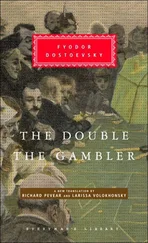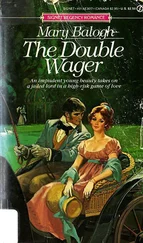His partner, apparently, hadn’t had any idea that his new friend was a murderer: He was a drifter who had come to Vermont and presumed now they were merely going to have a little fun together at the expense of some young female bicyclist.
Afterward, Laurel went home to Long Island to recover, and she didn’t return to college in Vermont until January. The spring semester. She took courses the following summer to catch up-she was in Burlington that July anyway for her assailants’ trials-and by the autumn she was back on the same schedule with the rest of her classmates and would graduate with them in a couple of Junes. Still, the trials had been difficult for her. They had been brief, but there had been two to endure. It was the first time she had been back in the presence of either of her assailants since the attack, and the first time she had studied their faces in the flesh. The drifter, who would dramatically reduce his sentence by testifying against the bodybuilder, had pale skin the color of cooked fish and a nut-brown goatee that elongated a face already tending toward horsey. His hair was completely gone on top and what remained was gray mixed in with the brown of his small beard. Even though it was the summer, he wore a shirt with a high collar to hide his tattoo. A part of his defense was the contention that he had dropped acid before the attack and wasn’t in his right mind.
The bodybuilder was a lumberjack of a man who, while awaiting his trial, had continued to work out in the exterior pen where the weights were stacked at the prison in northwest Vermont-lifting, someone said, even on those frigid days when he would have to brush snow off the Nautilus machines-but it was once more those gray eyes that had struck Laurel. His head was shaved that summer, but she gathered that the autumn before he had merely kept his hair cropped to a tight bristle cut. After his sentencing in Vermont, he was extradited to Montana, where he was tried and convicted of the schoolteacher’s murder. He was serving a life sentence in a prison forty-five minutes from Butte. The drifter, following his conviction, was incarcerated in the correctional facility just outside of Saint Albans, relegated to the lowest, most demeaning rung of the prison in the eyes of the inmates: the pod with the sex offenders.
Certainly the assault changed Laurel ’s life in myriad ways, but the most obvious manifestation was that she stopped biking. The cleats had saved her life, but the sensation of being clipped in-of pedaling-brought her back to that dirt road in Underhill, and she never wanted to go back to that place again. She had always been a swimmer growing up, however, and so after a few years away from the water she returned to the pool, taking comfort both in the miles she would mark and the way the smell of chlorine in her hair instantly would remind her of the safe haven of her childhood in West Egg.
The other changes were more subtle: a penchant for older men that her therapist suggested might stem from a need to feel protected-cosseted-by father figures who would shield her from harm. An avoidance of the gym and the weight room. A diary. An even greater immersion in her photography. A distancing from the social world at the college, particularly the fraternities where she had spent most weekend nights her first year. And then, her senior year, the decision to move from the dormitories to an apartment at the edge of the campus. Laurel didn’t want to live by herself-though she was no longer an especially social person, she could still have moments of Zoloft-resistant anxiety, especially when she was alone in the dark-and Talia Rice, her roommate since they had both arrived in Vermont at eighteen, volunteered to come with her. They found a couple of bedrooms, a living room, and a kitchen they could share in a rambling Victorian that offered Laurel quiet and detachment, but was still close enough to the campus for her decidedly more extroverted roommate. It was also very sunny, which Talia insisted any place they chose had to be-for her friend’s sake.
Still, some people thought Laurel had grown aloof. She could tell. But she shrugged this off and further curtailed her more casual friendships.
Of course, the change that mattered most is this: If Laurel had not been fiercely attacked, she would not have resumed swimming laps. That sounds prosaic, anticlimactic. But life is filled with small moments that seem prosaic until one has the distance to look back and see the chain of large moments they unleashed. Pure and simple, if Laurel had not started venturing most mornings to the school’s natatorium, she would never have met the University of Vermont alumna who ran the homeless shelter in Burlington and continued to stay fit years later in the UVM pool. And then she would never have wound up working at the shelter, first as a volunteer while she was still in school and later, after she graduated, as a bona fide employee. And if she hadn’t wound up at the homeless shelter, she would never have met a patient from the state mental hospital, a gentleman (and he was indeed gentle) fifty-six years her senior who went by the name of Bobbie Crocker.
LAUREL ’S FATHER gave her some advice, too, when she was growing up: Smart is boring. Effort matters. And, yes, she should never forget that while she was being raised in a nice home in an impressive neighborhood with a mother willing to drive her to soccer games and swim team practice, most of the world lived in serious, dispiriting poverty and thus someday she would be expected to give something back. He did not mean to suggest in ominous tones that a karmic payback loomed before her because she always had enough to eat and never came home from the mall lacking in clothes or CDs or boys with whom she might want to hook up.
Her father knew everything about the consumption, but nothing about the boys. At least nothing of consequence. He died soon after she finished college with nary a notion of either the sexual appetites or the experimentation that occurred in the high school circles in which she had traveled, or the sexual carousel that had marked her first year at the University of Vermont.
He was a Rotarian, which meant that he was a sizable target for comic abuse. But he was firm in his belief that when his two daughters were grown they would have a moral obligation to reach out to others who lacked their advantages. His Rotary Club actually paid for and built an orphanage in Honduras, and he went there himself annually to inspect it and make sure the charges there were content and well cared for. And so Laurel always was careful to defend the Rotary when people around her made jokes about the organization, making it clear to the glib and sarcastic that in her opinion you didn’t make fun of people with full-time jobs who put roofs over the heads of children whose parents had died of AIDS or had lost their homes in a hurricane. Her sister, a stockbroker five years her senior, became an active member of that very same Rotary Club.
Laurel was twenty-three when her father died abruptly of a heart attack. She was confident that he knew how much she had loved him, but that didn’t necessarily make the hole his death had left in her life any easier to fill. He and her mother had arrived at the hospital in Burlington the night she was attacked in less than three hours. How? A fellow Rotarian was a pilot with a small plane, and he flew them north as soon as she called.
Laurel and her childhood friends were well aware that the country club on Long Island Sound where they all learned to swim and sail and play tennis had once been the home of Jay Gatsby. But, in truth, they didn’t much care. Even their parents didn’t much care. Their grandparents probably did. But as nine- and ten- and eleven-year-olds, Laurel and her friends didn’t care much at all about anything that mattered to their grandparents. The clubhouse and broad, sweeping dining room had been Jay Gatsby’s stone mansion, and there were dusty black-and-white photographs of his parties from the early 1920s decorating the foyer. In every image everyone was overdressed. Or pickled. Or both. Laurel sensed that her friends-the boys, anyway-might have been more intrigued by the club’s history if the swimming pool in which they spent whole summer days had been the marble one in which George Wilson had shot Gatsby, but it wasn’t; that pool was long gone, replaced by an L-shaped monster with eight twenty-five meter lanes along the letter’s vertical length, and a twelve-foot deep diving section along the shorter, horizontal span. There was a one-meter board and a three-meter board, and in the grass along the western and northern sides there were long rows of stately crab apple trees. In the high summer, the young mothers would sit among them in the shade with their toddlers. Laurel spent five years at the pool on the swim team and another three as a diver.
Читать дальше












